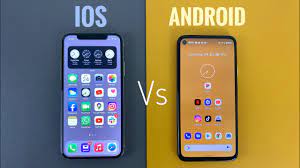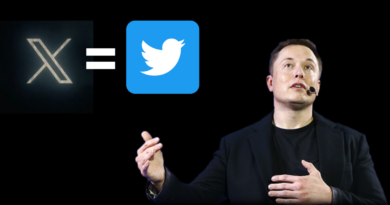WHY IS MY ANDROID BETTER THAN YOUR IPHONE WHEN YOU CHOOSE AN ANDROID?
Which should I choose: an iPhone or an Android? As long as one of them is alive, this race will never finish. This conversation needs to come to an end, and I’m glad to do it. Why you should select an Android phone over an iPhone is covered in this article. More frequently, both smartphones give almost identical specifications, but the quality varies.
ANDROID OR IPHONE: WHY IS ANDROID BETTER compared to IPHONE?
The quality of iPhones is undoubtedly higher than that of Android phones, but only to a certain degree. You won’t worry about the quality if you get a lot of features. The greatest feature of Android phones is their ability to be customised however the user pleases. When it comes to quality, iPhone outcomes from the camera are far superior. Unlike most low-end Android devices, the iPhone’s camera can capture images in stunning clarity.
The most recent Samsung Galaxy S23 has levelled the playing field, though. We will explore how some features make Android devices more popular than iPhones in our blog post, Android or iPhone. We have many choices for customising and personalising Android devices. I’ll explain why picking an Android phone over an iPhone is better in this article.
DIFFERENT FEATURES:
The features and choices available on Android phones are more varied, including colors, sizes, designs, prices, and specifications. You have a wide range of options to pick from. Android phones cost less money and have more functions on par with flagship models. The Samsung Galaxy A54, Google Pixel 6a, and OnePlus Nord N20 5G are some of the top low-cost Android smartphones.
Additionally, for less money than the iPhone, the Samsung Galaxy S23 Ultra, OnePlus 11, and Google Pixel 7 Pro provide an almost identical experience. The most notable features of Android devices include split-screen multitasking, reverse wireless charging, headphone jacks, rapid charging, fingerprint readers, and many others. Additionally, iOS devices do not yet support all of these functions.
ONE CHARGER FOR ALL:
The charging cable and connector that almost all Android smartphones ship with are the same. For connectivity, Android smartphones today have USB-C ports. The most recent MacBooks and iPads from Apple both utilise the USB-C specification. I frequently neglect to bring my Android charger with me when I go see my family in my village. I never have a problem powering my phone, to put it briefly.
Fast charging is an excellent addition in this respect; what makes it worthwhile is that you won’t have to wait too long to use your phone with a fast charger. The Realme GT3 serves as the finest illustration; it charges in less than 10 minutes. If the charging cord is damaged, it is simple and cheap to replace it. The iPhone box does not contain an additional charging connection, so if you misplace one, you will need to purchase the more expensive cable.
Options for expandable storage
Apple iPhones only have built-in, non-expandable storage; they don’t have any other storage choices. In addition, additional storage costs a lot of money. You will still need to purchase additional room if you run out. Android phones, on the other hand, have an additional space for a microSD card. This enables you to expand the storage space on your phone without removing any files or apps.
SYNCHRONIZATION WITH A WINDOWS PC IS EASIER ON AN ANDROID TELEPHONE THAN AN IPHONE.
To exchange data, for instance, you could use Bluetooth, cloud storage, or a USB cable. Additionally, each brand has its own sync software, which makes it simpler for you to view the content on your phone.
For making and receiving phone calls, reading and replying to text messages, and other tasks, there is a Windows Phone Link app. You’ll need to master iTunes, one great tool for almost everything, to accomplish these tasks on iPhone.
EASY CUSTOMIZATION:
Android offers a variety of simple modification options, including the ability to alter the home screen lock, add custom ringtones, use the device, and more. Users can generally alter the platform’s overall appearance and experience. The ability to acquire apps from the Google Play Store is also unrestricted.
Users can also obtain applications from unofficial websites. However, the iPhone only allows users to obtain apps from the App Store. Additionally, there is a rigid security system that makes modification challenging.
BETTER SETTING OPTIONS:
In terms of readily accessible settings, Android and iPhone are very dissimilar. On iOS devices, you can reach the control centre by swiping down from the top right corner. A calculator, audio and brightness controls, aeroplane mode, and other shortcuts can all be found in the drop-down control centre.
On Android, to reach the one-tap settings shortcuts, swipe down from the top right corner. Additionally, Android provides almost half of the drop-down list’s options icons. For instance, you can access the WiFi or Bluetooth icon to pair a new device or connect to a new Wi-Fi connection without visiting the Settings tab.
CHANGE THE WHOLE PHONE THEME:
The best feature of the Android operating system is that it enables users to instantly change the interface. Many different preset themes are available from Android smartphone manufacturers. So, if you’re bored, you can switch your smartphone’s complete theme. Third-party apps can also be used to alter the app icons.
Users cannot alter the Home screen’s appearance or feel thanks to Apple. Additionally, iOS devices only permit one icon per program, which you can reorder individually. There is a crucial detail lacking here: You can only change their order.
FINAL DECISION: IPHONE OR ANDROID?
The best, most affordable, and best option for those seeking for something practical is always Android. There are many functions available on Android devices that are not available on iOS devices. One of the most desired characteristics in 2023, for instance, is reverse wireless charging and fast charging. For years, iPhone users have boasted about having the best camera ever, but new updates have shifted the tide back in favour of Android.



